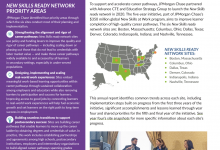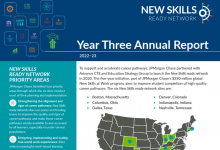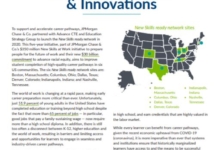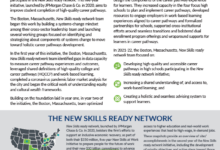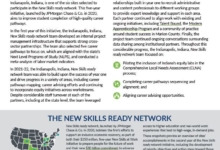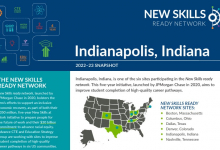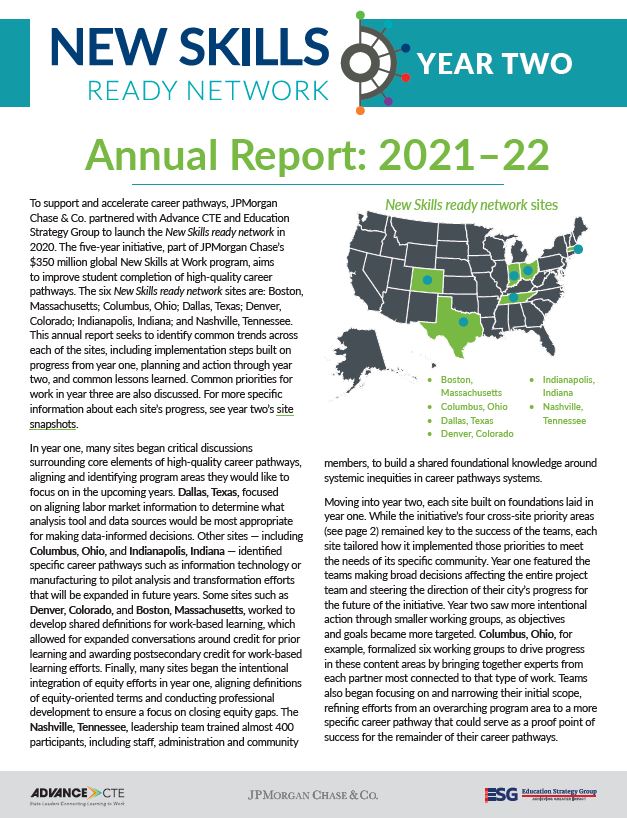This annual report provides an overview of strides to achieve high-quality, equitable career pathways across six sites participating in the New Skills ready network initiative. provides an overview of the New Skills ready network initiative; highlights key steps forward for sites across the four project priorities; and identifies lessons learned from year two. With the support of Advance CTE and Education Strategy Group, the six New Skills ready network sites – Boston, Massachusetts; Columbus, Ohio; Dallas, Texas; Denver, Colorado; Indianapolis, Indiana; and Nashville, Tennessee – mapped and analyzed the quality and alignment of career pathways; aligned systems of career advising; increased learner access to work-based learning opportunities; and intentionally embedded equity throughout all initiatives. The sites also conducted year three actions associated with the four priority areas:
- Strengthening the alignment and rigor of career pathways;
- Designing, implementing, and scaling real-world work experiences;
- Building seamless transitions to support postsecondary success; and
- Closing equity gaps.
In addition to the annual report, each site’s priorities and accomplishments are detailed in a corresponding Year site snapshot:
- Boston, Massachusetts
- Columbus, Ohio
- Dallas, Texas
- Denver, Colorado
- Indianapolis, Indiana
- Nashville, Tennessee
These resources were produced through JPMorgan Chase & Co.’s New Skills ready network, a five-year, $35 million initiative aimed at developing equitable career pathways and policy recommendations that give underserved students access to higher education and real-world work experiences that lead to high-wage, in-demand jobs. This initiative is part of JPMorgan Chase & Co.’s $350 million initiative to improve student completion of high-quality career pathways and a $30 billion commitment to advance racial equity.

